
The Majestic Mt. Fuji: Japan's Iconic Peak
Discover the breathtaking beauty of Mt. Fuji, Japan's tallest peak, offering stunning landscapes, cultural heritage, and an unforgettable outdoor experience.
Experience the breathtaking beauty of Mt. Fuji, a UNESCO World Heritage site, renowned for its symmetrical cone and vibrant cultural significance. Perfect for hiking, photography, and appreciating Japan's natural wonders.
A brief summary to Mt. Fuji
- Nogura, Ueda, Nogura, Nagano, JP
Local tips
- Visit during the climbing season for the best access to the summit.
- Explore the Fuji Five Lakes for stunning views and recreational activities.
- Bring warm clothing, as temperatures can drop significantly at higher altitudes.
- Check weather conditions before your visit to ensure the best visibility.
- Consider visiting during sunrise for a magical view of Mt. Fuji illuminated by the morning sun.
Getting There
-
Car
To reach Mt. Fuji by car from Izu, start on the Izu Skyline road. Head north on Route 135 from Izu, and then merge onto the Izu Skyline (Route 410). Continue driving for approximately 45 km until you reach the exit for the Fuji Five Lakes area. Follow the signs for Lake Kawaguchi, and from there, you will get a beautiful view of Mt. Fuji. Be aware that there may be tolls along the Izu Skyline, so keep some cash or a credit card ready for toll fees.
-
Public Transportation
If you're using public transportation, start at any major train station in Izu, such as Izukogen or Ito. Take a train on the Izu Hakone Railway to Gotemba Station. From Gotemba Station, transfer to a bus bound for the Fuji Five Lakes area. The bus ride takes about 40 minutes, and you should disembark at the Lake Kawaguchi stop for the best views of Mt. Fuji. The bus fare from Gotemba to Lake Kawaguchi is approximately 1,500 yen.
-
Taxi
For a more direct approach, consider taking a taxi. You can easily find taxis at major hotels or train stations in Izu. A taxi ride to Mt. Fuji from Izu will take around 1.5 hours, depending on traffic, and will cost approximately 10,000 to 15,000 yen. Make sure to confirm the fare with the driver before starting your journey.
Discover more about Mt. Fuji
Iconic landmarks you can’t miss
Kanayamajinja Matsuo Shrine Sanjuyonmassha
18.4 km
Explore the serene beauty and cultural significance of Kanayamajinja Matsuo Shrine, a tranquil escape in Matsumoto's enchanting landscape.

Welcome Matsumoto
30.7 km
Explore the enchanting city of Matsumoto with personalized tours and expert guidance from Welcome Matsumoto, your premier travel agency.
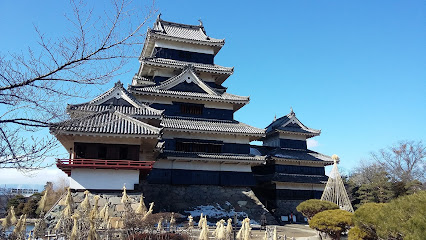
Kawanakajima Old Battlefield
31.1 km
Explore Kawanakajima Old Battlefield, a serene historical site in Nagano, where samurai legends come to life amid stunning natural beauty.
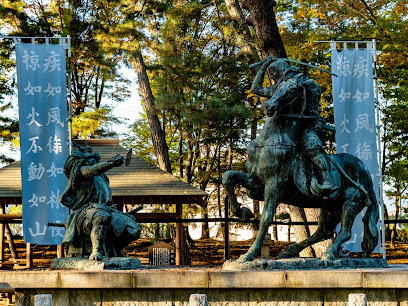
Daihongan, Zenkōji Temple
38.5 km
Experience peace and spirituality at Daihongan, Zenkōji Temple, a stunning Buddhist sanctuary in Nagano, Japan, rich in history and natural beauty.

Niōmon Gate, Zenkōji Temple
38.5 km
Explore the serene beauty and rich history of Niōmon Gate at Zenkōji Temple, a must-see cultural landmark in Nagano, Japan.

Zenkōji Honbō Daikanjin
38.7 km
Experience the tranquility and spiritual heritage of Zenkōji Honbō Daikanjin, a historic Buddhist temple in Nagano, Japan.

Zenkōji Main Hall
38.8 km
Discover the serenity and spiritual legacy of Zenkōji Main Hall, a must-visit Buddhist temple in Nagano, where history and culture unite.

Zenkōji temple
38.8 km
Explore the serene beauty and rich history of Zenkōji Temple, a cultural gem in Nagano, Japan, perfect for spiritual seekers and history enthusiasts.
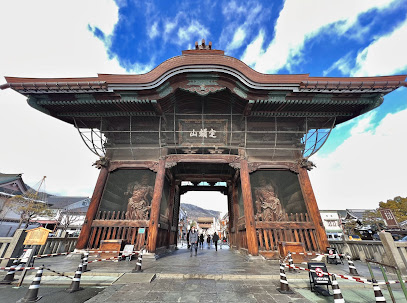
The Prince Karuizawa
43.6 km
Experience luxury amidst nature at The Prince Karuizawa, a top-tier hotel offering stunning vistas and exceptional recreational activities.

Kamikōchi
46.5 km
Experience the breathtaking landscapes and serene nature of Kamikōchi, a stunning destination in the Japanese Alps perfect for outdoor adventures.
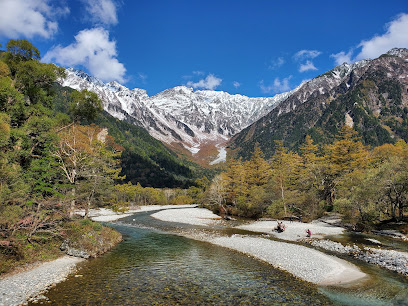
Kagami ike pond
49.2 km
Discover the stunning beauty of Kagami Ike Pond, a tranquil escape in Togakushi, where nature's reflections create a breathtaking atmosphere.
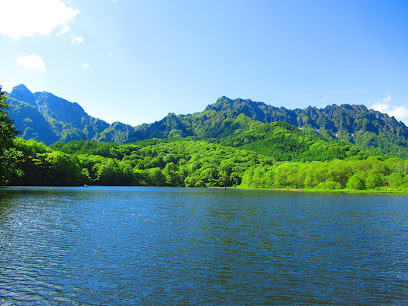
Megane Bridge (Usui No. 3 Bridge)
49.3 km
Experience the beauty and history of Megane Bridge in Annaka, Japan – a must-visit for architecture lovers and nature enthusiasts alike.
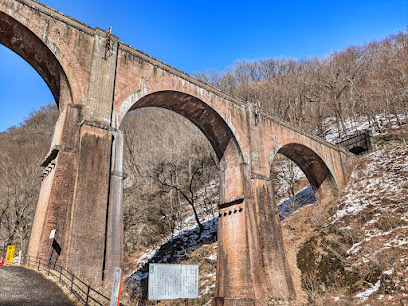
Chubu-Sangaku National Park
49.7 km
Discover the breathtaking beauty of Chubu-Sangaku National Park, a natural wonder in the heart of Japan's majestic Alps, perfect for adventurers and nature lovers.

Idojiri historical landmarks park
49.8 km
Explore the captivating blend of history and nature at Idojiri Historical Landmarks Park in Nagano, a must-visit for every traveler.
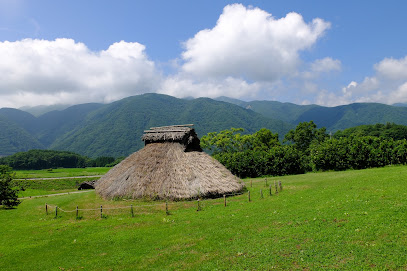
Yugama
50.3 km
Discover the serene beauty of Yugama, a stunning volcanic crater lake in Kusatsu, surrounded by nature and rich geothermal activity.
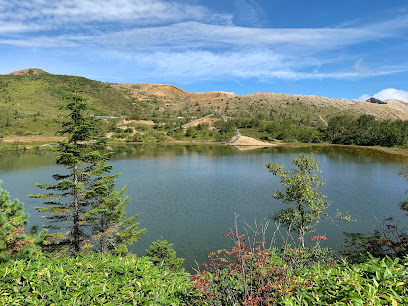
Unmissable attractions to see
Anrakuji Temple
4.3 km
Discover the tranquil beauty of Anrakuji Temple, a historic Buddhist sanctuary nestled in Nagano's lush landscapes, perfect for spiritual reflection and relaxation.
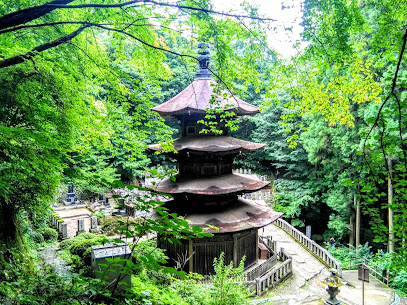
Utsukushigahara Highland
10.5 km
Discover the breathtaking beauty of Utsukushigahara Highland, a serene nature preserve in Nagano, Japan, perfect for hiking and wildlife watching.
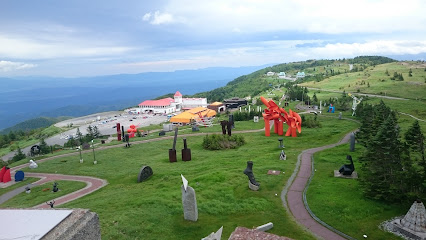
Uedajo Castle Ruins
13.1 km
Discover the rich history and stunning views at Uedajo Castle Ruins, a historical landmark in Nagano, Japan, perfect for any traveler.
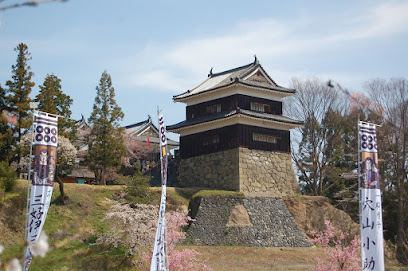
Ueda Castle Ruins Park
13.1 km
Discover the enchanting Ueda Castle Ruins Park, where history meets nature in the stunning landscapes of Nagano, Japan.
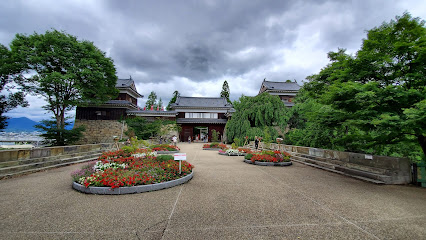
Ueda Castle Ninomaru Ruins
13.2 km
Discover Ueda Castle Ninomaru Ruins: A historical landmark in Nagano, Japan, offering breathtaking views, rich history, and beautiful gardens.
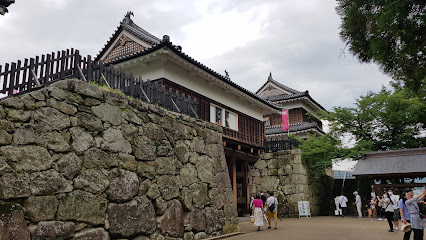
Chateau Mercian Mariko Winery
13.9 km
Explore the enchanting Chateau Mercian Mariko Winery in Nagano, where tradition meets exquisite Japanese winemaking amidst breathtaking scenery.
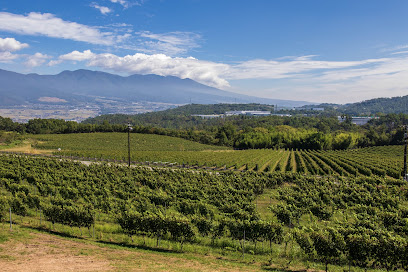
Former Yamabe Elementary School (Local History and Folklore Museum)
15.7 km
Explore the Former Yamabe Elementary School, a Local History Museum in Matsumoto, and uncover the rich traditions and folklore of Nagano Prefecture.
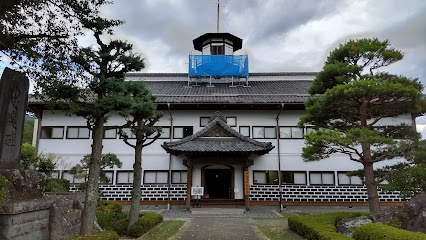
Matsumoto Mingeikan Folk Art Museum
16.0 km
Explore the Matsumoto Mingeikan Folk Art Museum for a unique insight into Japan's rich folk art heritage, showcasing traditional crafts and historical artifacts.
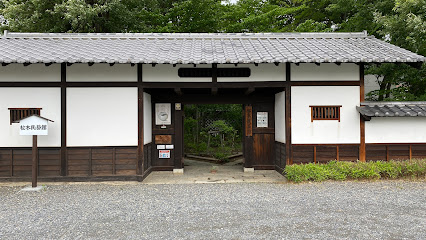
Katsura Shigehide Museum
17.2 km
Explore the Katsura Shigehide Museum, a serene art haven in Matsumoto, showcasing exquisite Japanese craftsmanship and rich cultural heritage.
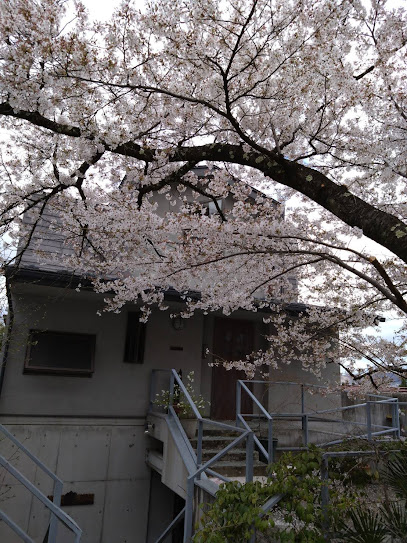
Old System High School Memorial Hall
17.6 km
Explore the rich educational heritage of Japan at the Old System High School Memorial Hall, a captivating museum in Matsumoto.
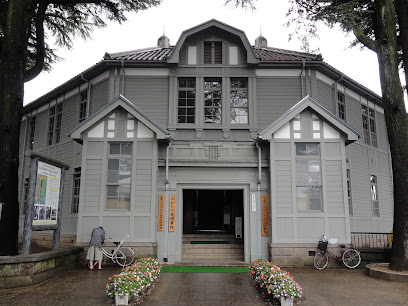
Yasuka Museum
17.7 km
Explore the rich artistic heritage of Japan at Yasuka Museum in Matsumoto, a must-visit for art enthusiasts and culture seekers.

Matsumoto City Museum of Art
18.0 km
Explore the vibrant world of contemporary art at Matsumoto City Museum of Art, where creativity meets culture in the heart of Nagano, Japan.

Former Kaichi School
18.1 km
Explore the Former Kaichi School, a historic local museum in Matsumoto, showcasing a unique blend of European and Asian architectural styles.
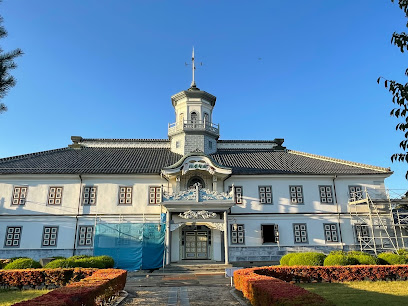
Matsumotojō Taikomon Gate
18.1 km
Discover the stunning Matsumotojō Taikomon Gate, a historical landmark showcasing the beauty of Japan's architectural heritage amidst breathtaking landscapes.
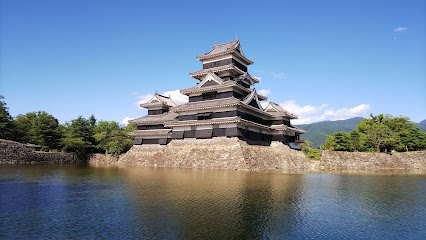
Matsumoto Castle Park
18.2 km
Explore the enchanting Matsumoto Castle Park, a blend of stunning architecture and beautiful gardens in Nagano, Japan's historical treasure.
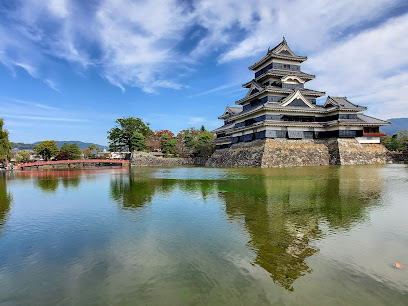
Essential places to dine
Kusabue Ueda Shop
13.6 km
Discover the authentic taste of Japan at Kusabue Ueda Shop, renowned for its traditional soba noodles and warm hospitality.
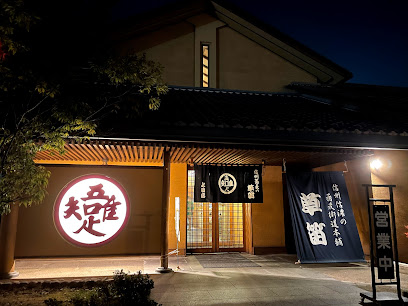
GojiGoji sobockle
16.9 km
Discover the fusion of art and flavor at GojiGoji Sobockle - A must-visit Japanese curry destination in Tateshina.

Doon Shokudo Indoyama
17.9 km
Experience authentic Indian cuisine at Doon Shokudo Indoyama in Matsumoto—where rich flavors meet diverse dietary options.
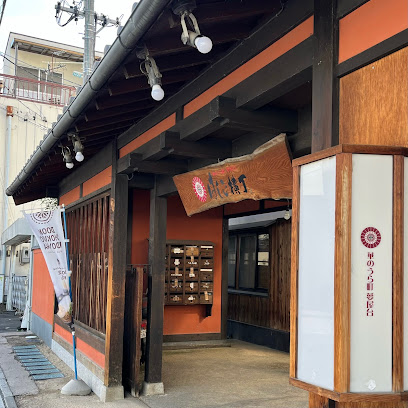
the Source
18.1 km
Discover The Source in Matsumoto – where American diner classics meet local hospitality for an unforgettable dining experience.

Nagato bokujō farm
19.5 km
Discover fresh flavors and local crafts at Nagato Bokujō Farm – a perfect getaway in Nagano's beautiful countryside.

Restaurant Sanza
21.1 km
Experience the exquisite fusion of French cuisine and Japanese flavors at Restaurant Sanza in Saku, Nagano.
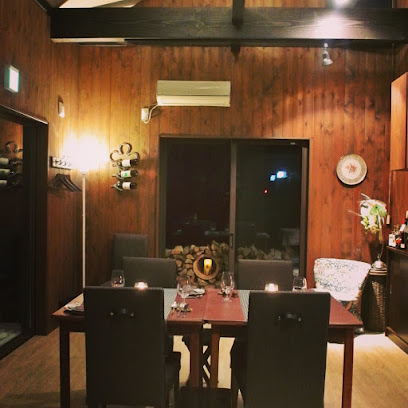
Shima Sushi
23.1 km
Experience the true taste of Japan at Shima Sushi in Nagano - where freshness meets tradition.

Asashinatei
23.6 km
Discover authentic Japanese cuisine at Asashinatei in Nagano – where local flavors meet warm hospitality.
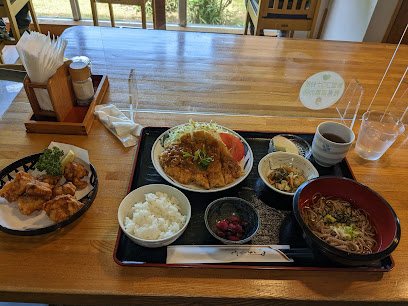
KAI
24.5 km
Experience the essence of authentic Japanese cuisine at KAI in Komoro - where tradition meets taste.
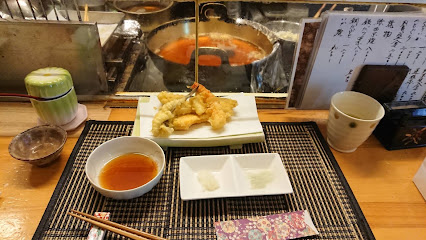
Thomas
31.6 km
Savor the fusion of Japanese and Western flavors at Thomas in Miyota – where every dish tells a story.
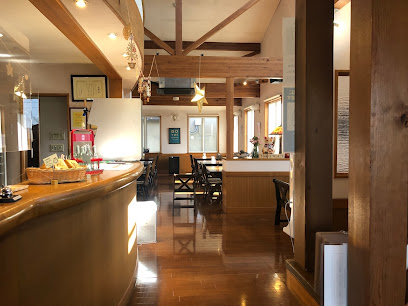
Katsura
33.2 km
Experience authentic Japanese cuisine at Katsura Izakaya in Omachi – where tradition meets flavor in every dish.
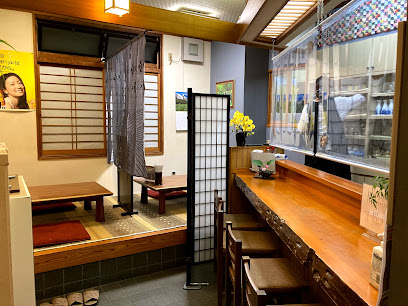
Showaken
33.3 km
Experience authentic tonkatsu at Showaken in Omachi, where crispy pork cutlets meet traditional Japanese hospitality.
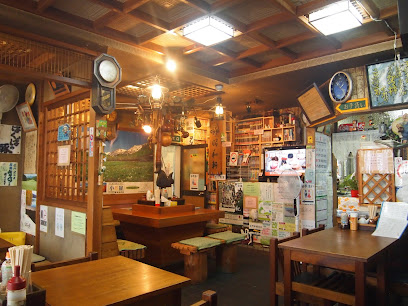
Wachigai
33.6 km
Experience authentic Japanese cuisine at Wachigai in Omachi - where local flavors meet tradition in a cozy setting.
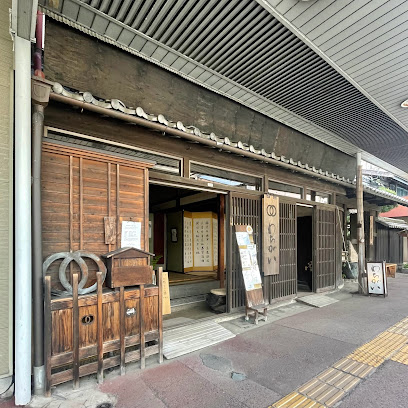
Japanese Restaurant SHINANO
36.8 km
Experience authentic Japanese cuisine at SHINANO in Nagano—savor sushi, teppanyaki, and kaiseki in a warm atmosphere.
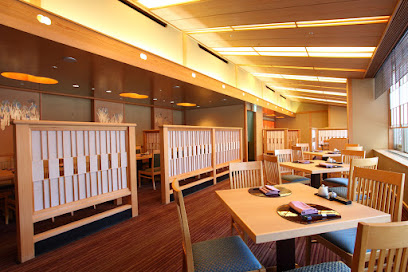
Nagano Meijitei
36.8 km
Experience authentic Katsudon at Meijitei, Nagano's favorite culinary gem known for its delicious pork cutlets and warm hospitality.

Markets, malls and hidden boutiques
Musashi Home Improvement
10.3 km
Explore Musashi Home Improvement in Ueda for an extensive selection of home, garden, and crafting supplies, perfect for any DIY project.

MORINO NAKA STORE/森の中ストア
11.1 km
Explore the unique offerings of MORINO NAKA STORE in Nagawa, where nature meets local craftsmanship for an unforgettable shopping experience.
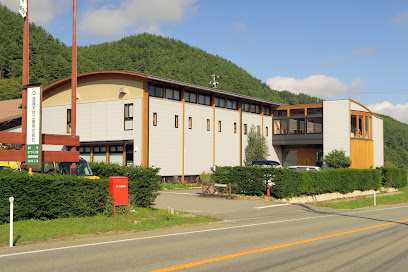
BOOKOFF
14.2 km
Explore the vast collection of used books at BOOKOFF in Ueda, a paradise for book lovers seeking unique finds at amazing prices.

Maraika Aishititen
27.2 km
Explore Maraika Aishititen in Yamagata for a unique shopping experience with African and Asian goods, fashion, and home essentials.

Book Off Okaya Wakamiya
29.0 km
Explore a vast collection of used books at Book Off Okaya Wakamiya, a treasure trove for bibliophiles in Nagano. Affordable prices and hidden gems await!

BOOKOFF Saku Nakagomi
30.3 km
Explore hidden treasures at BOOKOFF Saku Nakagomi - your go-to destination for used books and unique thrift finds in Saku, Nagano.

Ogino Chino
34.8 km
Experience authentic Japanese shopping at Ogino Chino, a vibrant supermarket with a variety of local produce, snacks, and essential goods in Nagano.

MIDORI Nagano
36.9 km
Explore MIDORI Nagano, a dynamic shopping mall offering diverse stores, delightful dining, and unique local finds in the heart of Nagano.

Hands Nagano Store
36.9 km
Explore a delightful mix of gifts, home goods, and unique souvenirs at Hands Nagano Store in the heart of Nagano.

XUÂN SHOP VIỆT NHẬT
37.0 km
Experience the vibrant essence of Vietnam at XUÂN SHOP VIỆT NHẬT, a unique shopping destination in Nagano with authentic products and cultural charm.

Nagano Tokyu Department Store
37.0 km
Discover the essence of shopping in Nagano at the vibrant Nagano Tokyu Department Store, where local culture meets modern retail.

Karuizawa Prince Shopping Plaza
43.6 km
Discover the ultimate shopping experience amidst the stunning backdrop of Karuizawa's natural beauty at Karuizawa Prince Shopping Plaza.

ヨイト | yoito
43.7 km
Explore Yoito in Karuizawa: A charming general store filled with unique artisan creations and local treasures.

Maraika OUTLET Karuizawaten
43.7 km
Explore a world of culture and craftsmanship at Maraika OUTLET Karuizawaten, your destination for unique African and Asian goods in Japan.

Studio Ghibli Gift Shop
43.8 km
Explore the enchanting Studio Ghibli Gift Shop in Karuizawa, where magic and nostalgia meet through unique collectibles and memorabilia.
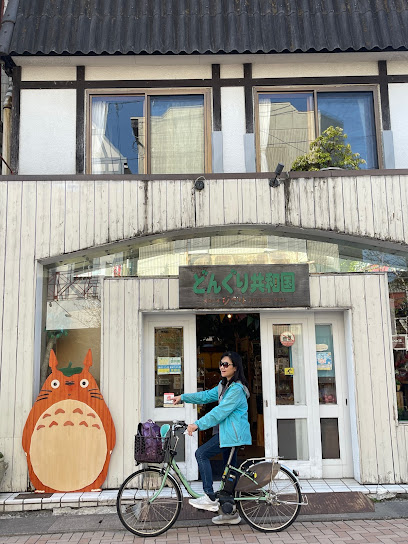
Essential bars & hidden hideouts
SIDECAR(サイドカー)
18.2 km
Experience the lively nightlife at SIDECAR, a top bar in Matsumoto offering unique cocktails and a welcoming atmosphere.

Old Rock
18.5 km
Discover Matsumoto's Old Rock: A charming Irish pub blending local flavors with a warm, inviting atmosphere for tourists and locals.

SinkOrSwim18
18.7 km
Experience the dynamic nightlife of Matsumoto at Sink or Swim, where creative cocktails meet a vibrant atmosphere for an unforgettable evening.
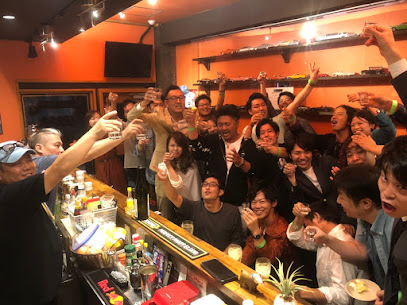
Mahorobi
18.8 km
Experience the warm ambiance and extensive whisky selection at Mahorobi, Matsumoto's top bar for lovers of fine spirits and local culture.

Bar Zizz
24.5 km
Experience the vibrant nightlife at Bar Zizz, Komoro's premier bar known for its exquisite cocktails and sophisticated atmosphere.

bar ORKINY
33.7 km
Discover the vibrant nightlife at Bar Orkiny in Omachi, where exceptional drinks and a warm atmosphere await travelers.
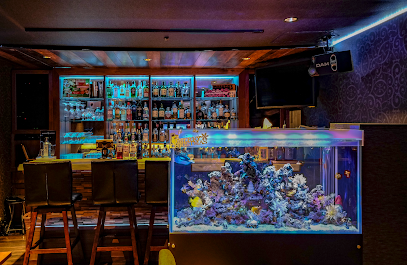
BA BAR
37.1 km
Discover Nagano's nightlife at BA BAR, where exceptional drinks and a welcoming atmosphere await you.

BAR 599
37.2 km
Discover the vibrant nightlife of Nagano at BAR 599, where exquisite drinks meet a cozy atmosphere for a memorable evening.

The Red Dragon
37.2 km
Discover the heart of Nagano's nightlife at The Red Dragon Pub, where delicious drinks and a lively atmosphere await every evening.
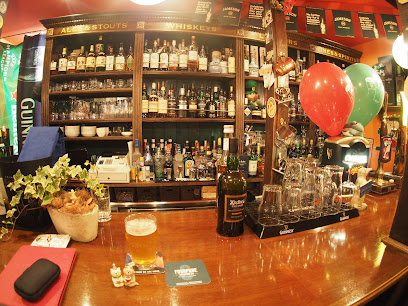
Bar Moet (バー モエ)
37.4 km
Discover a lively bar in Nagano, where local drinks and a warm atmosphere create the perfect nightlife experience.

BAR ROCK BREEZE(バー・ロック・ブリーズ)
37.6 km
Experience vibrant nightlife at BAR ROCK BREEZE in Nagano, where live music, craft cocktails, and a welcoming atmosphere await.

Bird
38.0 km
Experience the vibrant nightlife of Nagano at Bird, a cozy bar offering a delightful selection of drinks and a friendly atmosphere perfect for socializing.

helmsdale karuizawa
43.0 km
Experience the finest fish and chips in Karuizawa at Helmsdale, a perfect blend of casual dining and gastropub charm.

Tracks Bar
47.3 km
Discover the warmth and charm of Tracks Bar in Hakuba, where great drinks and a vibrant atmosphere await after your adventures in the mountains.
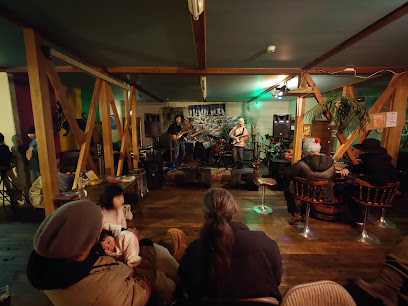
Bar Horn
47.4 km
Discover the elegant Bar Horn at Kamikochi Imperial Hotel, where breathtaking views and exquisite drinks await you in the heart of the Japanese Alps.




